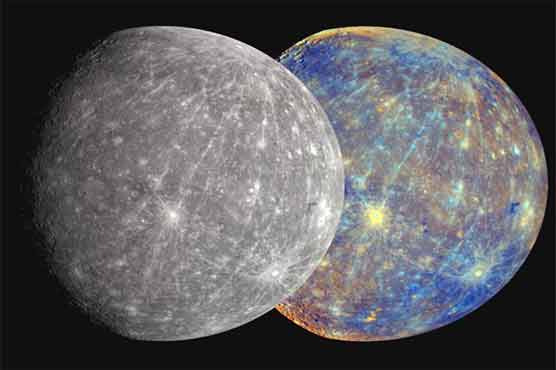Mercury, the incredible shrinking planet

Beneath its Sun-scorched exterior, the planet Mercury is cooling, which is causing it to shrink.
PARIS (AFP) - Beneath its Sun-scorched exterior, the planet Mercury is cooling, which is causing it to shrink ever so slightly, scientists said Sunday.
Over the last 3.8 billion years, the planet has shrunk by up to 14 kilometers (8.8 miles) to reach its present diameter of 4,800 km (3,032 miles), they said.
Mercury, like Earth, is believed to have a superhot metallic core.
But unlike Earth, it has no tectonic plates which bump and jostle and slide in response to the stress that heat loss causes on the planet s crust.
Instead, Mercury has just a single, rigid top layer, which means the stress is transmitted directly to the planet s surface, causing it to
"wrinkle" into gouges and ridges as the planet cools.
Planetary geologists led by Paul Byrne at the Carnegie Institution for Science in Washington used a tally of these features to get a yardstick for the planet s thermal contraction, the term for shrinkage through heat loss.
They studied nearly 6,000 landforms recorded by NASA s Messenger spacecraft to look for these telltales.
Earlier estimates based on images of only 45 percent of the planet suggested a contraction of 1.6 to six kilometres (one to four miles) over the course of its history.
The starting point for the measurement is the end of the "late heavy bombardment" of the Solar System -- a period that ran from around 4.1 billion to 3.8 billion years ago, when our star system was a shooting gallery of comets and other icy bodies which smashed into the nascent planets.
The study appears in the journal Nature Geoscience.

